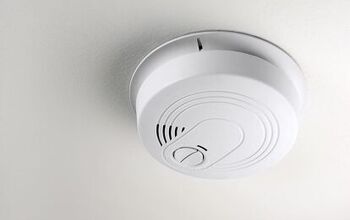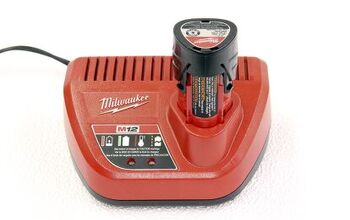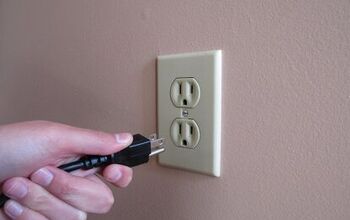Is Ortho Home Defense Safe for Pets? (No, Here's Why)

Ortho Home Defense is great for keeping bugs and killing off any nasty critters that may be taking up residence in your home. But like just about any other bug killer on the market, there will no doubt be questions about its safety of use around kids and pets.
Ortho Home Defense is not safe for dogs, but not as toxic for cats. The active ingredient for this inspect spray is Bifenthrin, which can cause dogs to drool excessively, gag, or even vomit. Keep your pets away in another room until the spray dries out, which takes about 6-8 hours. As an extra precaution, vent your room so your pet is not breathing the potentially harmful chemicals.
Related Content: How To Get Rid Of Rats In The Yard Without Harming Pets | Where Does Pest Control Spray In Apartments?
Do You Need Pest Control Services?
Get free, zero-commitment quotes from pro contractors near you.

How Long Does Ortho Home Defense Take to Dry?
Ortho Home Defense should dry within a couple of hours of application, though the directions state that it could take as long as 6-8 hours. Use best judgement in this instance.
Keep an eye on the Ortho Home Defense after applying it and make sure that it is dry to the touch (and wash your hands after interacting with it in any way). When it is completely dry, it is then safe for pets to come around.
Why Are Bug Sprays Toxic for Dogs?
Bug sprays are generally quite toxic for dogs to ingest. This is due to the component DEET that is found in most bug sprays, albeit in different concentrations. It is because of the DEET that it is so toxic to dogs. The DEET can cause staggering, vomiting, seizures, and even be deadly if enough of it is consumed.
Another common ingredient in bug sprays and repellants is picaridin. The picaridin has the same effects that DEET does and can also be dangerous to children if ingested. These two active ingredients should lead to extreme caution when using bug sprays and should be kept out of the reach of children and animals.
Pesticides to Avoid with Pets
Pesticides are a great way to keep an area free and clear of bugs. Unfortunately, not all of them are safe for use around pets and children. A good many of them are fine for use so long as they have been given the opportunity to dry first.
Still, there are a few pesticides that should be avoided entirely. The last thing that anyone wants is to spray a pesticide around their home or yard only for it to make their pet sick. Here are the pesticides that you’ll want to avoid.
Fertilizer Mixes
Stay away from any pesticides that have been mixed with fertilizer. Fertilizers that have bone or fish meal in them are probably fine, but the ones marketed as a fertilizer/pesticide mix can be quite dangerous for dogs, especially smaller breeds.
The smell is the biggest problem. It is that odor that encourages the dogs to want to consume the fertilizer/pesticide mix and no pesticide should be consumed by animals. This is fine to use if you can ensure that your pets will be nowhere nearby, but that can be a difficult task especially when a dog is determined to get at something that it wants.
Organophosphates
It is a good rule of thumb to never let your pets consume a pesticide, but some are definitely worse than others. If a pesticide contains organophosphates, it can be extremely dangerous to the health of your pets if consumed.
Organophosphates attack the central nervous system and can be deadly for dogs if consumed. Organophosphates containing disulfoton and malathion in particular are ones to avoid using around pets if at all possible.
Slug and Snail Bait
Depending on the area that you live in, slugs and snails can wind up being quite detrimental to the health of plants on the property. For this reason, using slug and snail bait to kill them makes perfect sense.
But when animals are involved, slug and snail bait can have major consequences. Consuming this kind of bait can be deadly for most small to medium-sized dogs, so use extreme caution when implementing this kind of bait.
What Pesticides Are Safe for Pets?
A natural pesticide implementation becoming more popular is the use of essential oils. Even though consumption of essential oils is never recommended, it won’t result in deadly consequences that many others will if ingested.
Even better, there is a huge range of essential oils that have natural bug repellant properties. Getting a fresh smell while keeping nasty pests and bugs away makes for a terrifically effective combination.
Lemon eucalyptus, lavender, pine, and tea tree are some of the most popular options because they can kill mosquitoes, eradicate ticks and fleas, and prevent ants.
1. Integrated Pest Management
One great way to keep bugs out of the yard without causing any harm to kids or pets is to use an integrated pest management (IPM). This isn’t so much a product as it is a process. This involves learning about what pests are bothering you, their cycles and some of their behaviors.
This system can even mean bringing in natural predators (ladybugs are a commonly used natural predator for pests that eat household plants and vegetables). Essential oils are great for a pest management system, too.
2. Diatomaceous Earth
A great way to keep pests away without risking the health of small children or pets is to use diatomaceous earth. It is completely harmless to both humans and dogs but can be very deadly to most kinds of insects. As a matter of fact, the food-grade diatomaceous earth is actually safe enough to eat.
Even better, diatomaceous earth can be rubbed into the dog’s coat to keep ticks and fleas away. For use in the yard, it will keep away flies, ants, slugs, beetles, and other types of pests. Diatomaceous earth can even be sprinkled on plants.
Best of all insects can’t build up a tolerance or resistance because it dehydrates them. Keep in mind that after each rainfall, the diatomaceous earth will need to be replaced. Still, it is a great, safe way to keep pests out of your yard without causing harm to pets.
3. Boric Acid
Another great way to keep pests away without harming your dog. Boric Acid works to fight and control weeds, bugs, fungi, and mold. Boric acid works to destroy the insects by attacking their stomachs, destroying them and deterring them from coming back.
The boric acid is great because it also destroys weeds and prevents them from coming back by totally drying them out. This is on top of the fact that it prevents mold and fungi from being able to reproduce and come back.
4. Baking Soda for CockroachesUsing baking soda is a great, natural way to get rid of cockroaches. This is because, when they consume the baking soda, it reacts badly with the gas that they create in their stomachs. When that gas mixes with the baking soda, it actually causes their stomachs to burst.
When the baking soda has done its thing, all that is left is to clean up the bodies. If there are more than a few cockroaches, it is probably best to call in a professional because cockroaches can be quite persistent and turn into an infestation. Here is another way to use baking soda.
5. Neem Oil
When it comes to outdoor pest control, or those pesky fruit flies in your house plants, neem oil is a great organic alternative. It works as both a pesticide and fungicide. Over the past few years, neem oil has grown in both popularity and usage. This has to do with the fact that it is 100% natural, non-toxic to pets and humans, environmentally friendly, and ridiculously inexpensive.
Neem oil is created by extracting the oil from seeds and fruits of the neem tree, an evergreen that is native to the Indian subcontinent. What makes it so effective as a pesticide is that it works to disrupt the reproductive cycle of insects.
Once insects ingest the neem oil, it will negatively affect its reproductive system, causing it to stop mating, laying eggs, moulting, and even eating. Eventually, all of the pests are killed off as the older insects die without having the opportunity to produce any offspring.
Neem oil is completely safe for use around pets and children and will repel bugs such as spider mites, scales, aphids, and white flies.
Do You Need Pest Control Services?
Get free, zero-commitment quotes from pro contractors near you.

Wrapping It Up
According to the manufacturer’s instructions, Ortho Home Defense is safe for use around pets, so long as it is dry. But our research says otherwise. The active ingredient of Bifenthrin can be toxic to dogs.
Therefore, if you decide to use this type of pesticide around the house, remove children and pets from the area and allow it to dry completely before letting them back in. If accidental ingestion occurs, your dog will show signs of nausea, drooling, diarrhea, and vomiting.
Though, if you want to avoid any potential issues entirely, consider using an alternative method such as essential oils, neem oil, baking soda, diatomaceous earth, or an IPM.

Ryan Womeldorf has more than a decade of experience writing. He loves to blog about construction, plumbing, and other home topics. Ryan also loves hockey and a lifelong Buffalo sports fan.
More by Ryan Womeldorf



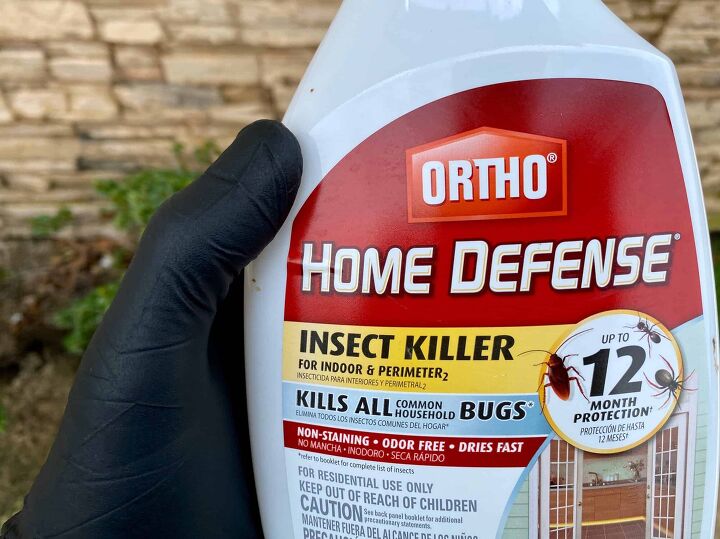









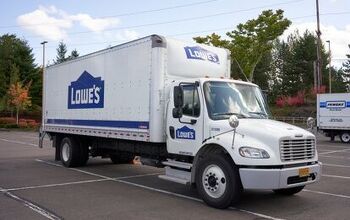
![10 Best Scroll Saws for 2022 [Ultimate Reviews & Buyer's Guide]](https://cdn-fastly.upgradedhome.com/media/2023/07/31/9070684/10-best-scroll-saws-for-2022-ultimate-reviews-buyer-s-guide.jpg?size=350x220)








